Albanese’s day one: change the climate
Anthony Albanese has joined Joe Biden’s climate change crusade and unveiled Australia’s new international approach on global carbon emissions at the Quad meeting.
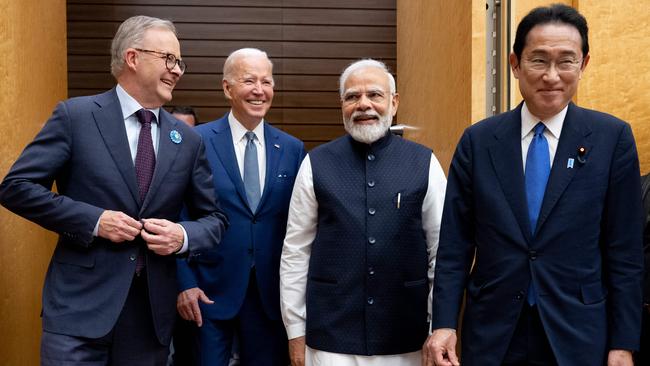
Anthony Albanese has joined Joe Biden’s climate change crusade and unveiled Australia’s new international approach on global carbon emissions at a Quad meeting in Tokyo where the US and Japan indirectly warned China they would not allow a Ukraine-like crisis to unfold in the Indo-Pacific.
Amid rising concerns about Chinese threats to Taiwan, South Pacific nations and global supply chains, the Prime Minister was praised by Quad leaders on Tuesday for turning up and committing to the security dialogue 24 hours after being sworn-in.
As promised during the six-week election campaign, Mr Albanese put climate change at the heart of his regional security message to Mr Biden, Japanese Prime Minister Fumio Kishida and Indian Prime Minister Narendra Modi.
Mr Albanese also talked down a congratulatory letter sent to him by Chinese Premier Li Keqiang – the first correspondence from Mr Li or President Xi Jinping to an Australian leader since 2018 – and warned that “China is clearly seeking to exert more influence”.
The Quad joint leaders’ statement released on Tuesday night reflected Australia’s climate change policy shift and launched a Quad climate change adaptation and mitigation package responding to the “immense challenges posed by climate change to the ¬island nations of the Pacific”.
“Recognising the urgent need to address climate change as emphasised in the latest IPCC -reports,” the statement said, “we will steadfastly implement the Paris Agreement and deliver on the outcomes of COP26.”
The Quad leaders vowed to accelerate efforts to “raise global ambition, including reaching out to key stakeholders in the Indo-Pacific region, and supporting, strengthening, and enhancing climate actions by partners in the region, including through mobilising climate finance, both public and private, and facilitating the research, development, and deployment of innovative technology”.
“We welcome the new Australian government’s commitment to stronger action on climate change, including through passing legislation to achieve net zero by 2050 and lodging a new, ambitious nationally determined contribution,” they said.
Mr Kishida began the meeting by repeating his concerns about Russian President Vladimir Putin’s war on Ukraine and linking it, indirectly, to fears about Beijing’s threats over Taiwan.
“We should never, ever allow a similar incident to happen in the Indo-Pacific,” Mr Kishida said.
Mr Albanese’s opening statement at the Kantei on Tuesday morning was heavily influenced by climate action and its links with the “security of our region”, as well as Labor’s election commitments to increase foreign aid by almost $1bn and step up Australia’s soft diplomacy efforts.
“My government is committed to working with your countries and we are committed to the Quad,” the Prime Minister said.
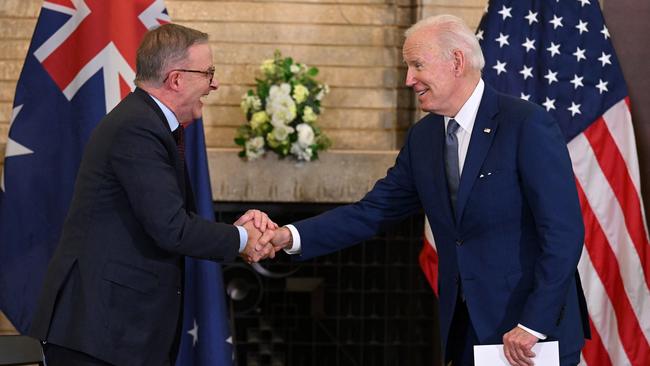
“Our co-operation is built on the values that we share. A commitment to representative democracy, the rule of law and the right to live in peace.
“The region is looking to us to work with them and to lead by example. That’s why my government will take ambitious action on climate change and increase our support to partners in the region as they work to address it, including with new finance.
“We will act in recognition that climate change is the main economic and security challenge for the island countries of the Pacific. Under my government, Australia will set a new target to reduce emissions by 43 per cent by 2030, putting us on track for net zero by 2050.”
In a bilateral meeting between Mr Albanese and Mr Biden following the Quad summit, the pair committed to collaborate in “addressing the existential threat posed by climate change” and invited each other to travel to Canberra and Washington DC. Mr Albanese also revealed his conversation with British Prime Minister Boris Johnson, who failed to convince Scott Morrison to follow the UK and US on global emissions-reduction targets, was dominated by climate change and the AUKUS security pact.
“The main thing that we discussed was climate change,” Mr Albanese said.
“We had quite a good discussion. It was longer than I thought it would be. The truth is the science of climate change is very clear. And we need a very clear response. He welcomed, very much welcomed, the fact that we will have stronger action on climate change, including with a higher 2030 target.”
The Quad focus on South Pacific nations comes as Chinese Foreign Minister Wang Yi travels through the region this week, supported by a 20-member delegation with stops expected in Solomon Islands, Fiji and Papua New Guinea. Beijing is urging other nations to follow Honiara’s lead and sign up to security agreements with China.
The Quad leaders flagged increased co-operation with South Pacific and ASEAN members to ensure the long-term effectiveness of the security dialogue and released technological, infrastructure and global health announcements aimed at neutralising Chinese power over critical technology supply chains and soft diplomacy efforts.
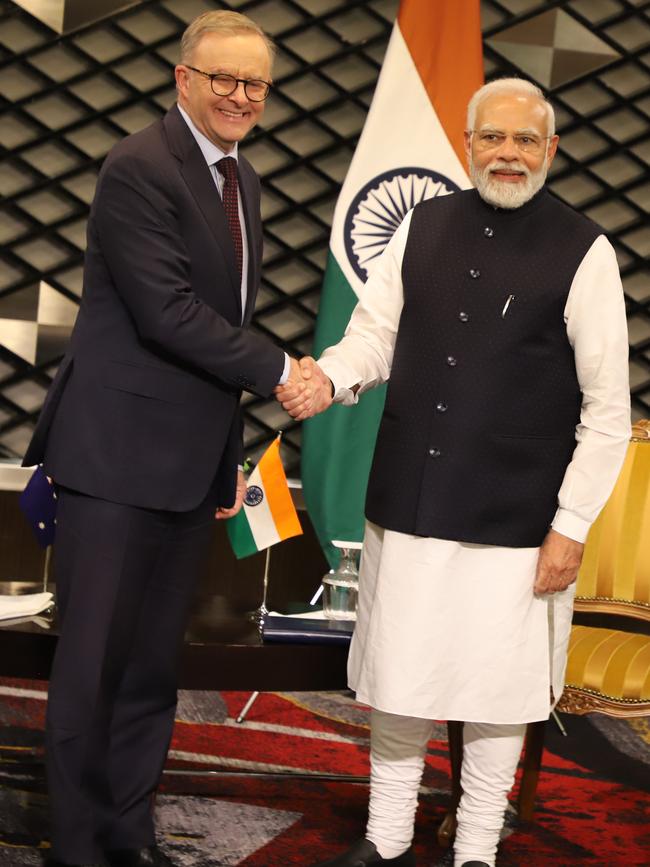
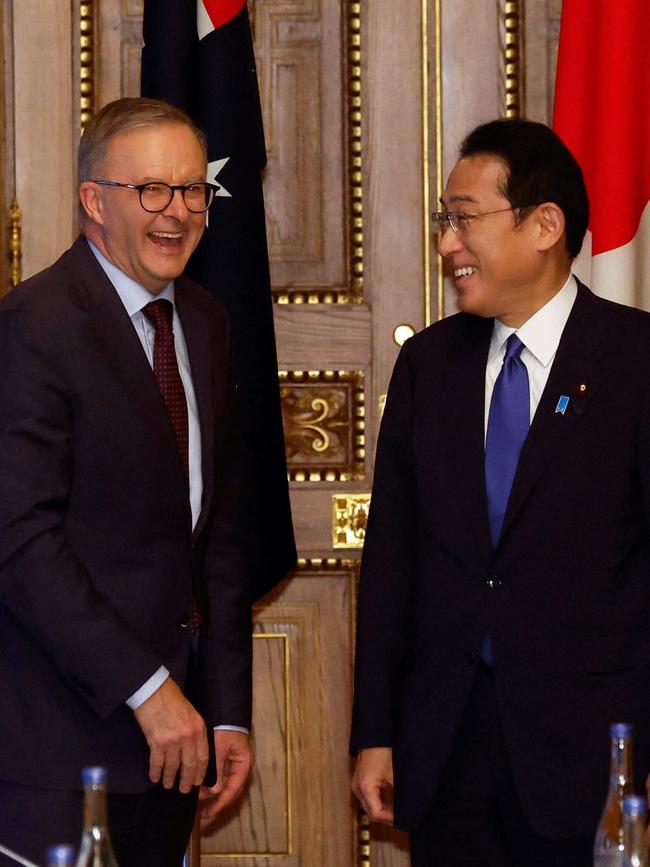
Mr Biden, accompanied by US Secretary of State Antony Blinken, national security adviser Jake Sullivan and Indo-Pacific adviser Kurt Campbell, continued to call out China after earlier this week, warning that the US would intervene if Taiwan was invaded.
Russia’s invasion of Ukraine and China’s increasingly assertive actions in the Indo-Pacific hung over Tuesday’s summit.
In Mr Biden’s opening remarks he praised Mr Albanese for turning up after a long election campaign and joked that he wouldn’t be surprised if he had a sleep during the summit.
The US President said the Quad meeting was being held during a “dark hour in our shared history”.
Mr Biden was the only leader to mention China specifically in his opening remarks, which were made before the media were asked to leave the room.
“I was once asked by the leader of China why I kept talking about being an Indo-Pacific power,” he said. “And I said ‘because we are – we share the Pacific – one entire side of our country’.”
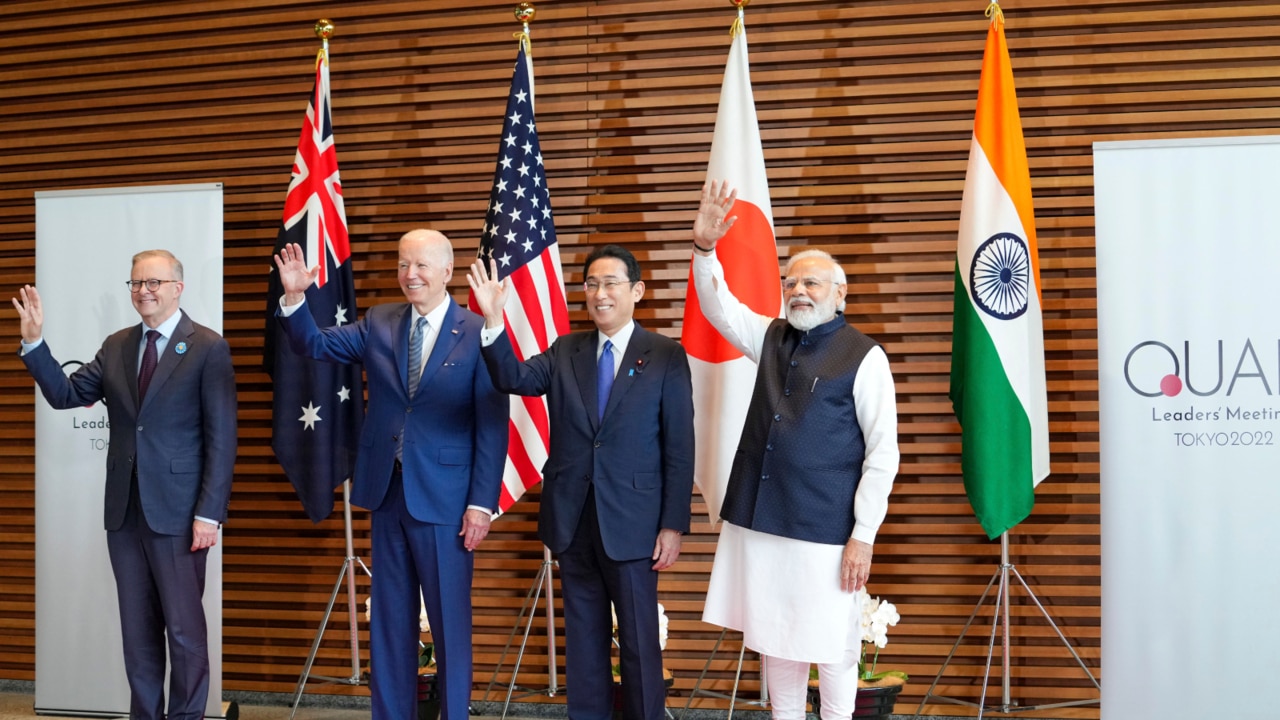
China’s Foreign Ministry spokesman Wang Wenbin on Tuesday night reacted furiously to Mr Biden’s comments on Taiwan.
“We advise the US side to listen to a well-known old Chinese song,” Mr Wang said.
“It sings that when a friend comes, there is a good wine. If the jackal comes, there is a shotgun to greet him.”
After Labor criticised the Morrison government for failing to do more to improve relations with Beijing, Mr Albanese on Tuesday was careful to tone down his response to Mr Li’s letter on the eve of the Quad summit, which was viewed with scepticism by foreign policy experts.
A White House statement released following the meeting between Mr Biden and Mr Albanese said the pair had doubled down on the AUKUS security pact with the UK.
“He (Mr Biden) commended Australia’s strong support for Ukraine since Russia’s invasion, and the leaders agreed on the importance of continued solidarity, including to ensure that no such event is ever repeated in the Indo-Pacific,” the statement said.
“The leaders praised the swift progress the United States and Australia are making, together with the UK, under the AUKUS partnership.”
More Coverage
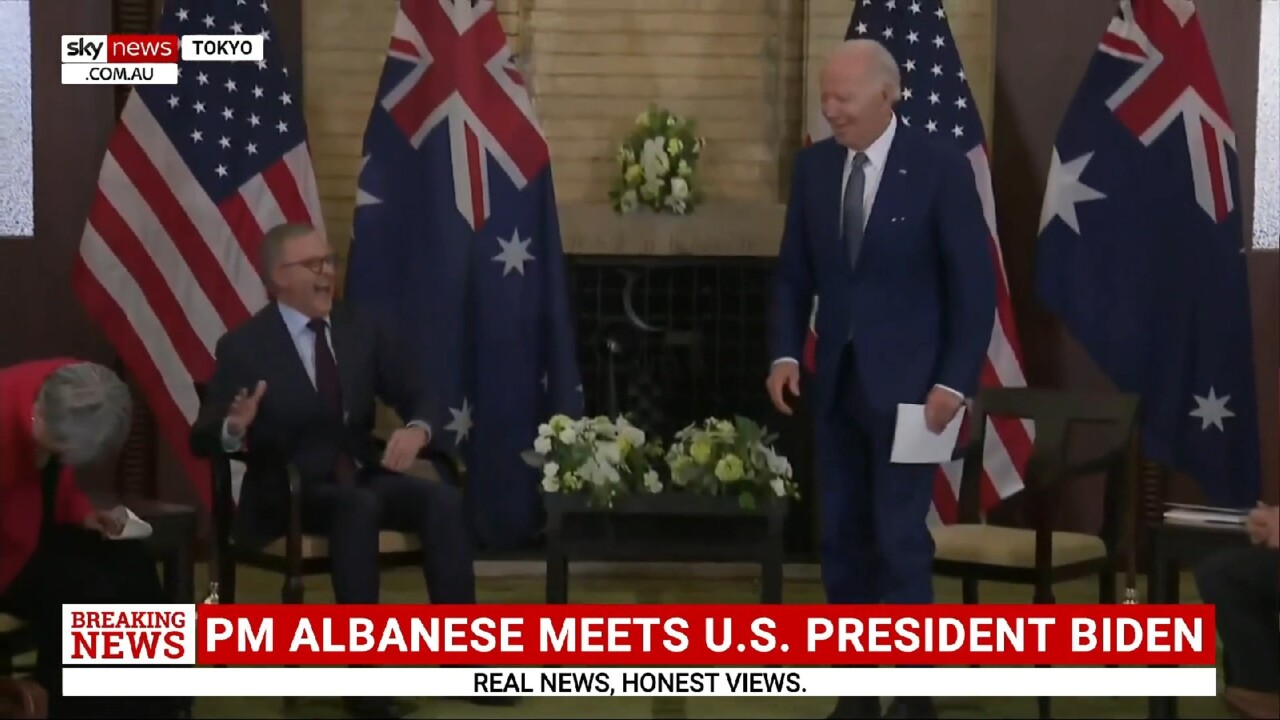

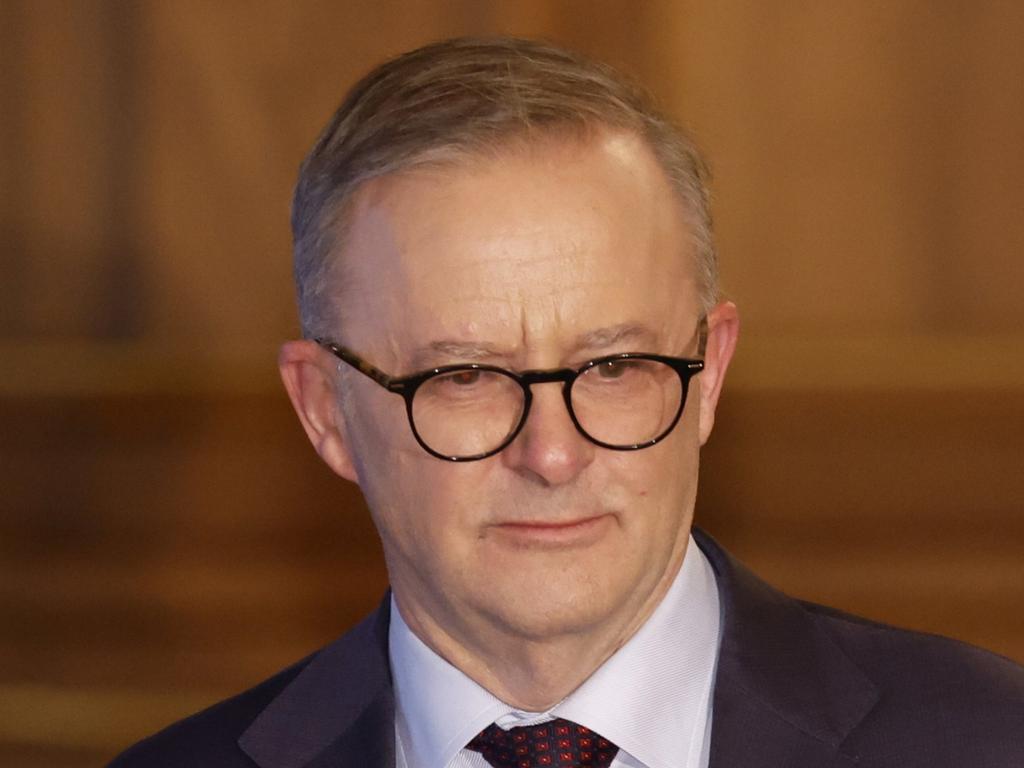

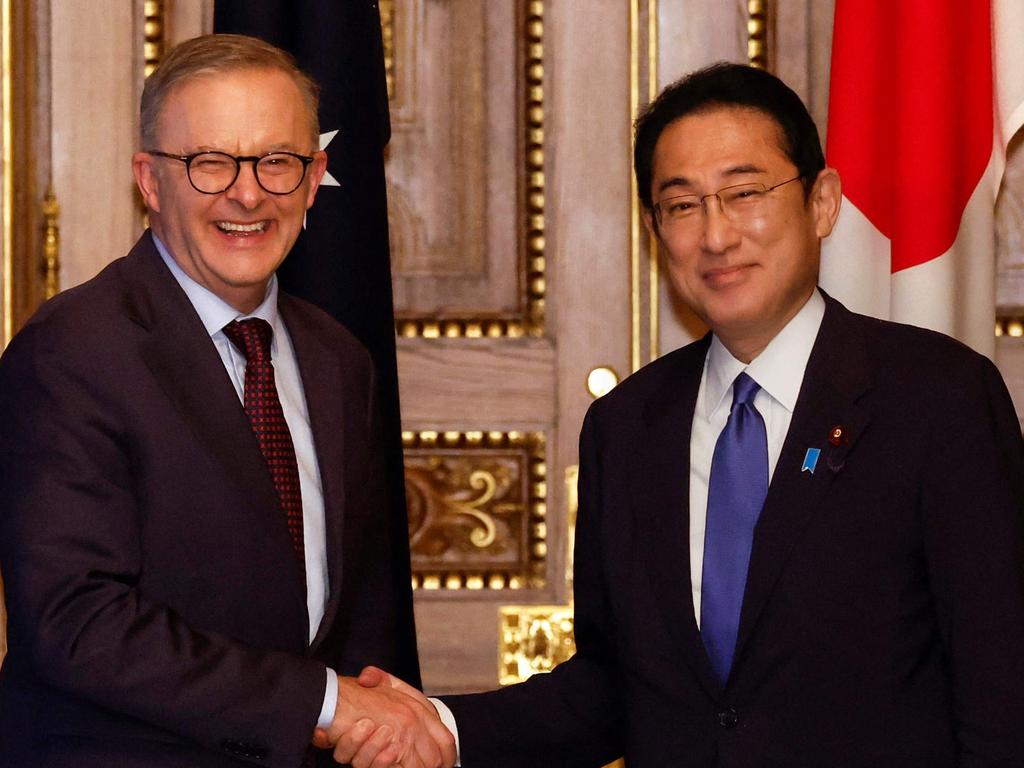



To join the conversation, please log in. Don't have an account? Register
Join the conversation, you are commenting as Logout